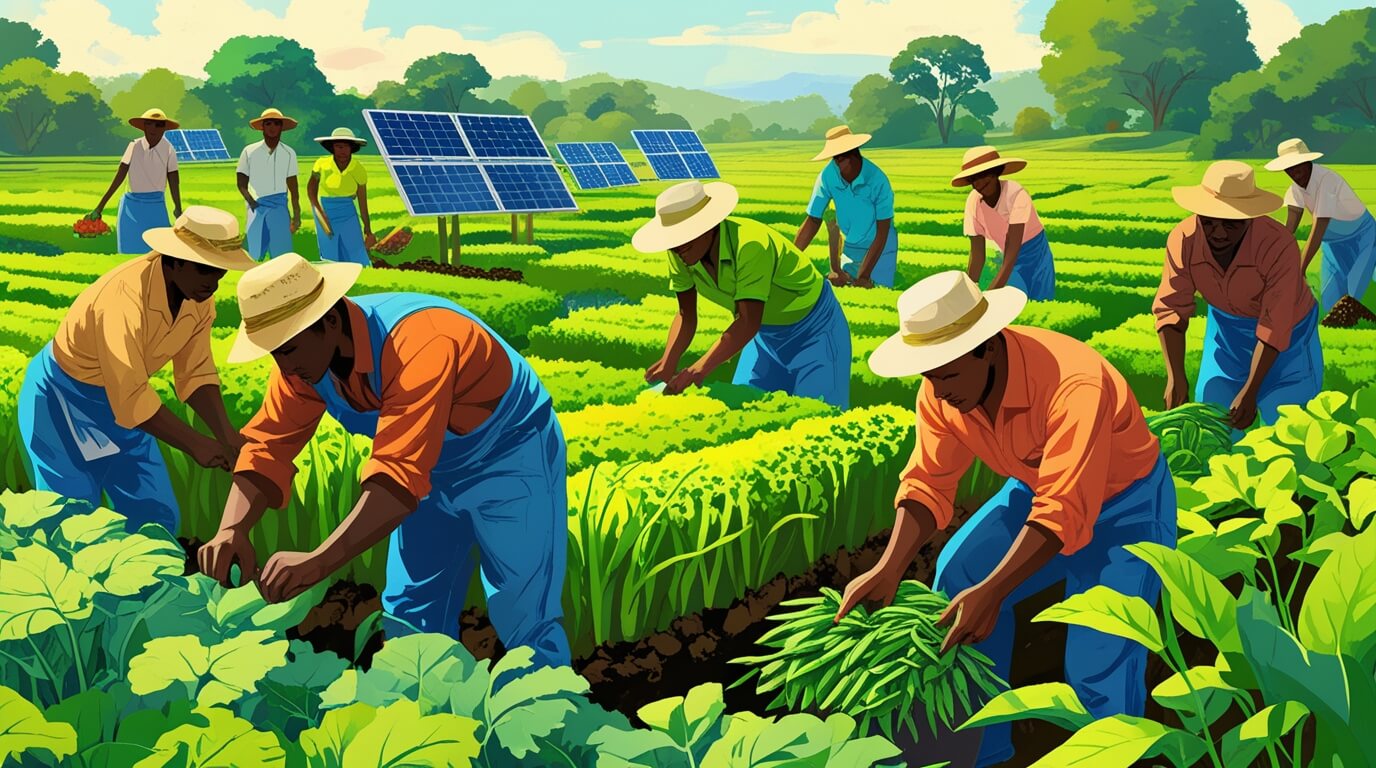The Importance of Sustainable Agriculture

Sustainable agriculture is more than just a method of farming—it is a philosophy and practice that balances the demand for food production with the need to protect natural resources, ecosystems, and social well-being. In a world where populations continue to rise and climate change intensifies food insecurity, the shift toward sustainable farming is not optional but essential. By combining innovation, tradition, and community participation, sustainable agriculture offers pathways to reduce poverty, protect biodiversity, and ensure access to nutritious food for generations to come.
Key Principles of Sustainable Agriculture
- Environmental Stewardship
- At the core of sustainable farming lies the responsibility to protect the environment. This includes improving soil fertility, conserving water, and safeguarding biodiversity. Farmers adopt practices such as crop rotation, permaculture, and organic composting to preserve soil health and reduce dependency on harmful chemical fertilizers (The Importance of Composting – Reducing Landfill Waste). By maintaining ecological balance, these methods help reduce erosion, improve resilience against climate shocks, and enhance long-term productivity.
- Economic Viability
- Farming must also provide financial stability for those who work the land. This means ensuring fair wages, access to local and global markets, and resources to adopt sustainable methods. Fair trade practices (Understanding Fair Trade Practices and Why They Matter) help farmers receive equitable prices for their products, while microfinance programs (Microfinance – Empowering Entrepreneurs in Poverty) give smallholder farmers the opportunity to invest in new tools, seeds, and eco-friendly technologies that improve both yield and livelihoods.
- Social Responsibility
- Beyond profits and productivity, sustainable agriculture emphasizes equity and community well-being. This includes ensuring access to affordable, nutritious food (What is Food Insecurity and Who Does It Affect), supporting local food networks, and promoting inclusive farming models that empower women, indigenous groups, and marginalized communities. Initiatives such as urban gardens, community farming cooperatives, and farm-to-table systems strengthen social bonds while making nutritious food more widely available.
Benefits of Sustainable Agriculture
- Reduces Environmental Impact
- Sustainable farming reduces dependence on pesticides and chemical fertilizers, conserves water through drip irrigation and rainwater harvesting, and improves soil fertility naturally. These practices also lower carbon emissions, contributing to climate change mitigation (Simple Ways to Reduce Your Carbon Footprint at Home).
- Enhances Food Security
- By diversifying crops, promoting resilient varieties, and supporting local food systems, sustainable agriculture provides a buffer against climate disruptions and global market volatility. Communities become less dependent on a few staple crops, reducing vulnerability to food shortages.
- Supports Economic Growth
- Local markets, fair trade initiatives, and cooperatives create steady income opportunities, particularly for smallholder farmers who make up the majority of the world’s food producers. This strengthens rural economies while reducing poverty.
- Promotes Healthier Communities
- Access to locally grown, chemical-free produce fosters healthier diets. Sustainable farming reduces exposure to harmful pesticides while offering communities nutrient-rich foods that improve immunity and overall well-being (How to Build a Strong Immune System).
Strategies to Promote Sustainable Agriculture
- Adopt Climate-Resilient Practices
- Farmers can integrate drought-tolerant crops, agroforestry systems, and renewable energy technologies into their production methods. Efficient irrigation systems such as drip irrigation conserve water while maximizing crop output.
- Community Education and Engagement
- Educating farmers, students, and consumers about eco-friendly agricultural practices and sustainable nutrition choices builds a stronger foundation for future generations. Schools and local organizations play a crucial role in spreading awareness.
- Policy Support and Advocacy
- Governments and NGOs can strengthen sustainable agriculture by providing subsidies for eco-friendly technologies, protecting farmland from industrial encroachment, and funding research on climate-smart farming techniques (The Future of Learning – Innovations in Education).
- Global Cooperation
- Addressing global food insecurity requires international collaboration. Programs led by the United Nations (UN – Sustainable Agriculture) and the Food and Agriculture Organization (FAO – Climate-Smart Agriculture) encourage knowledge-sharing, funding, and policy frameworks that support vulnerable farming communities across the globe.
Conclusion
- Sustainable agriculture is not merely a farming technique—it is a comprehensive solution to some of the world’s most pressing issues: climate change, poverty, and food insecurity. By promoting environmental stewardship, supporting farmer livelihoods, and ensuring equitable access to nutritious food, sustainable farming becomes a cornerstone of resilience and progress. Every individual—from policymakers and educators to local communities and consumers—has a role in advancing these practices. Supporting sustainable agriculture means securing a healthier planet and a food-secure future for generations to come.
